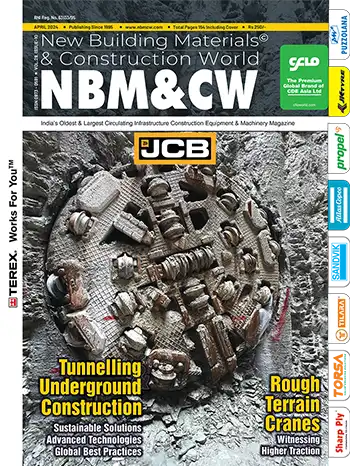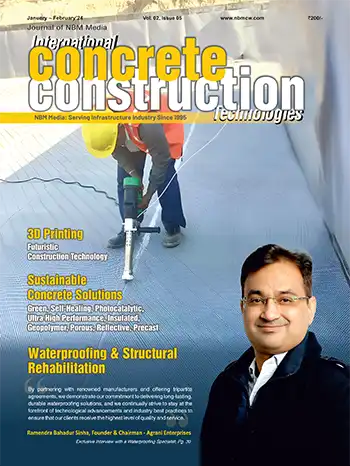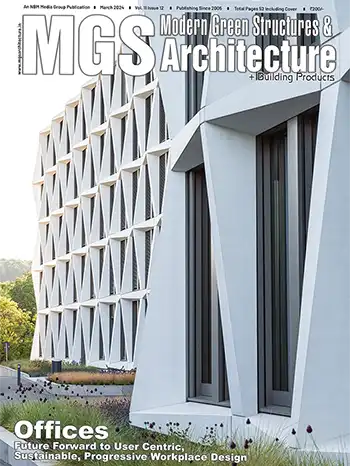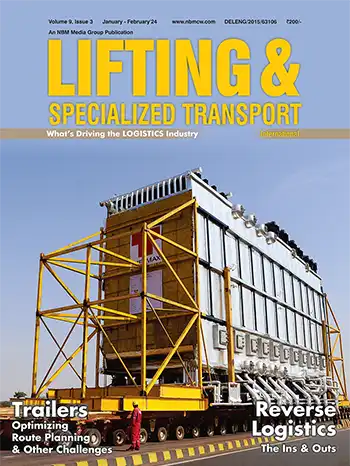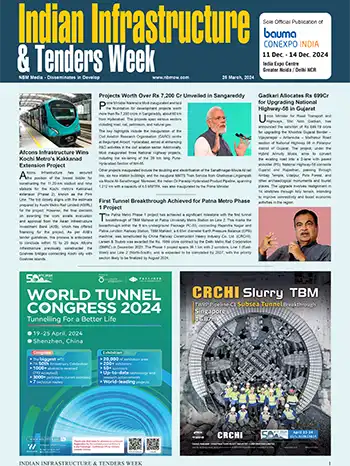New Age Technologies for Construction Industry
R Shobha, National Director, Project Management, Colliers International India
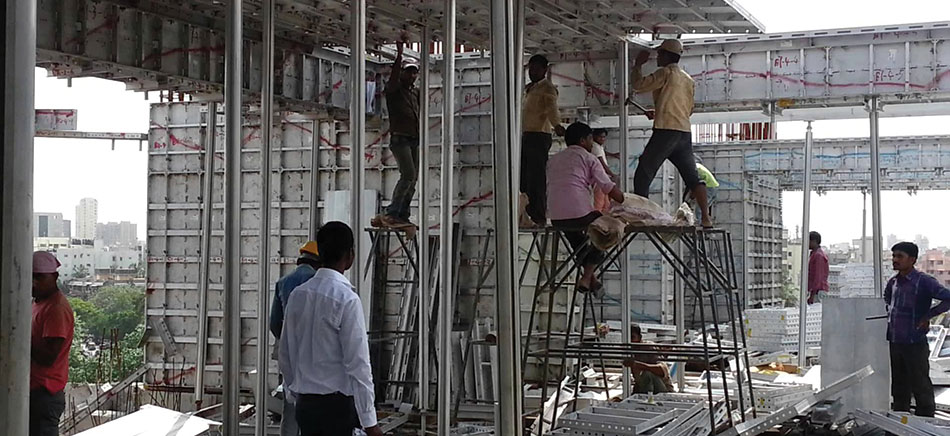
The construction industry is changing rapidly, and new materials and technologies are being introduced on a regular basis. Execution of construction projects and their timely delivery has become a prime concern for developers in view of the buyer’s agitation on delay in construction. Especially after RERA, which emphasises the need for timely completion of projects, adoption of modern technologies has become the need of the hour.
Rising industrial, residential and commercial growth is driving demand for faster construction and world-class quality. It has become imperative to use newer products and technologies to meet this increasing demand. The construction industry in India is at the cusp of disruptive change with new materials, building technology, software, digitization and artificial intelligence changing the way we conceptualize, build, and use our buildings.
Private developers are continuously exploring new technologies that improve the quality, strength and safety of the buildings. In metro cities, few developers have started using self-climbing formwork, aluminum shuttering, precast concrete techniques and drywall systems. These technologies are not only cost-effective, but offer advantages such as minimal labour required, higher earthquake resistance, more durability, larger carpet area, smooth finish on walls, and lower maintenance. Such technologies not only reduce the turnaround time but also improve the quality and durability of construction, and help in generating more interest in affordable housing projects among buyers.
Aluminum Shuttering
Aluminum shuttering was introduced in India more than a decade ago. Though sparingly used in the past, the technology has now gained wide acceptance and is present in most of the high-rise construction. Aluminum shuttering increases the overall cost on construction but reduces the construction time which will allow developers to start sales earlier than planned. Where timely delivery of the project is one of the prime concerns owing to regulatory reforms and escalating construction costs, aluminum shuttering has become a saviour. In conventional building techniques, transportation of building material such as bricks, wastage of materials during carriage and handling, makes construction more expensive than aluminum shuttering.
Some benefits:
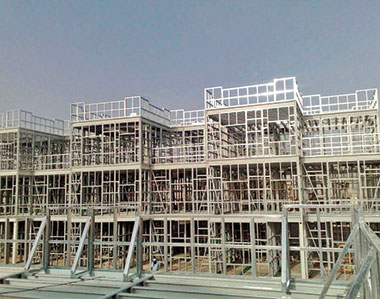 Another construction technology gaining ground is prefabricated or offsite construction. It is the practice of assembling a variety of components of a structure at a manufacturing site and transporting them to the construction jobsite to be assembled.
Another construction technology gaining ground is prefabricated or offsite construction. It is the practice of assembling a variety of components of a structure at a manufacturing site and transporting them to the construction jobsite to be assembled.
It is considered as a low-end and mass-produced mode of construction, but in reality, it is quite the opposite as it requires meticulous planning and detailing as well as a greater eye for quality and precision. Prefabricated construction is essentially of two types:
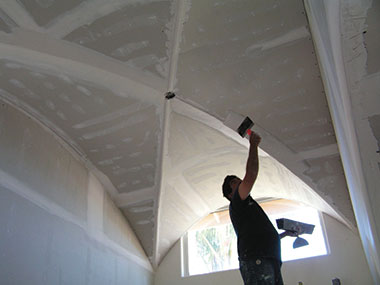 While the above two systems greatly enhance construction of the building shell, interior walls are also undergoing a change with use of drywall systems and concrete and other precast panels. These systems have been around for a while and have been used in certain types of buildings/interiors but are now fast gaining ground in mass buildings as well. The construction of walls can be faster, easier and cleaner on site. Requirement for a large labour force is reduced and quality of the finished product is enhanced.
While the above two systems greatly enhance construction of the building shell, interior walls are also undergoing a change with use of drywall systems and concrete and other precast panels. These systems have been around for a while and have been used in certain types of buildings/interiors but are now fast gaining ground in mass buildings as well. The construction of walls can be faster, easier and cleaner on site. Requirement for a large labour force is reduced and quality of the finished product is enhanced.
Construction has seen a huge boom in the last decade and continues to grow by leaps and bounds with Housing for All by 2022 vision of the Indian government and the growing Indian economy. Also, acceptance of some of the newer construction technologies is increasing as the industry keeps pace with the growth.

The construction industry is changing rapidly, and new materials and technologies are being introduced on a regular basis. Execution of construction projects and their timely delivery has become a prime concern for developers in view of the buyer’s agitation on delay in construction. Especially after RERA, which emphasises the need for timely completion of projects, adoption of modern technologies has become the need of the hour.
Rising industrial, residential and commercial growth is driving demand for faster construction and world-class quality. It has become imperative to use newer products and technologies to meet this increasing demand. The construction industry in India is at the cusp of disruptive change with new materials, building technology, software, digitization and artificial intelligence changing the way we conceptualize, build, and use our buildings.
Private developers are continuously exploring new technologies that improve the quality, strength and safety of the buildings. In metro cities, few developers have started using self-climbing formwork, aluminum shuttering, precast concrete techniques and drywall systems. These technologies are not only cost-effective, but offer advantages such as minimal labour required, higher earthquake resistance, more durability, larger carpet area, smooth finish on walls, and lower maintenance. Such technologies not only reduce the turnaround time but also improve the quality and durability of construction, and help in generating more interest in affordable housing projects among buyers.
Aluminum Shuttering
Aluminum shuttering was introduced in India more than a decade ago. Though sparingly used in the past, the technology has now gained wide acceptance and is present in most of the high-rise construction. Aluminum shuttering increases the overall cost on construction but reduces the construction time which will allow developers to start sales earlier than planned. Where timely delivery of the project is one of the prime concerns owing to regulatory reforms and escalating construction costs, aluminum shuttering has become a saviour. In conventional building techniques, transportation of building material such as bricks, wastage of materials during carriage and handling, makes construction more expensive than aluminum shuttering.
Some benefits:
- Repetition – the durability of the material yields to repetition in typical high-rise construction
- Saves time and speed to market project
- Block work / Brick work can be eliminated in case used for walls
- Impeccable smooth finish achieved with concrete, with no need of plastering as in case of brick wall construction
- Due to less thickness of walls in comparison to brick walls, greater carpet area can be achieved
- Concrete structure requires negligible maintenance.

It is considered as a low-end and mass-produced mode of construction, but in reality, it is quite the opposite as it requires meticulous planning and detailing as well as a greater eye for quality and precision. Prefabricated construction is essentially of two types:
- Pre-engineered buildings: Pre-engineered Buildings (PEB) use steel columns, beams and other structures. These structures are fabricated, brought to site and assembled to the final form. Traditionally, steel structural members are combined with composite metal panels and other wall and roof systems. PEB systems are widely used in industrial construction and warehouses.
- Pre-cast Construction: Here, structural members are cast in concrete offsite, brought to site and assembled. The wall, slab, and roof members may be in situ concrete, dry wall systems or metal cladding. Long used for infrastructure and pavement construction, the technique is more affordable and is now gaining acceptance in the building industry.
- Faster: The elements can be mass produced in a factory, the cycle time from design to completion can be shortened.
- Environment-friendly: Construction debris and waste can be reduced to a great extent along with noise, soil and air pollution at worksites, making sites cleaner and safer. Workers and engineers on sites are exposed to less health risks.
- Quality: Since factory-produced elements are precise, the overall attention to detailing, integration of various components in the building and quality of construction goes up.

Construction has seen a huge boom in the last decade and continues to grow by leaps and bounds with Housing for All by 2022 vision of the Indian government and the growing Indian economy. Also, acceptance of some of the newer construction technologies is increasing as the industry keeps pace with the growth.
NBM&CW November 2017














